Impact report: 2022 Academy for Student Leaders

Preliminary findings
About 300 students participated in all or part of the 2022 summer conference of the Ed100 Academy for Student Leaders, June 20-22. Over the course of this free, three-day online event, students learned from 43 speakers, including elected officials, researchers, non-profit leaders, journalists, innovators, educators, and, of course, students. They also met one another in breakout sessions, took notes, and identified actionable next steps, some of them with the 12 organizations that aligned with the program as Engagement Partners.
Coordinated student effort made the conference possible. The event host was Alvin Lee, a rising sophomore at Stanford who is also a founder of GENup, a student organization. Students recruited, recorded and edited speakers. Students developed learning materials and interactive conference sessions. Students developed and edited video content. Students ran the event and facilitated breakout sessions. Student outreach ambassadors got the word out to school communities and media organizations.
This was the third iteration of the conference, which originally launched in the pandemic summer of 2020. We have been combing through the extensive survey feedback. What were the outcomes? What are the possible next steps? This post is a brief summary of a more complete Post-Event Analysis.
Who participated?
The vast majority of participants in this conference were high school students. More than half of the students were rising seniors (28.6% ) or rising juniors (28.2%). About a fifth were rising sophomores, and about a tenth were rising freshmen or eighth graders.
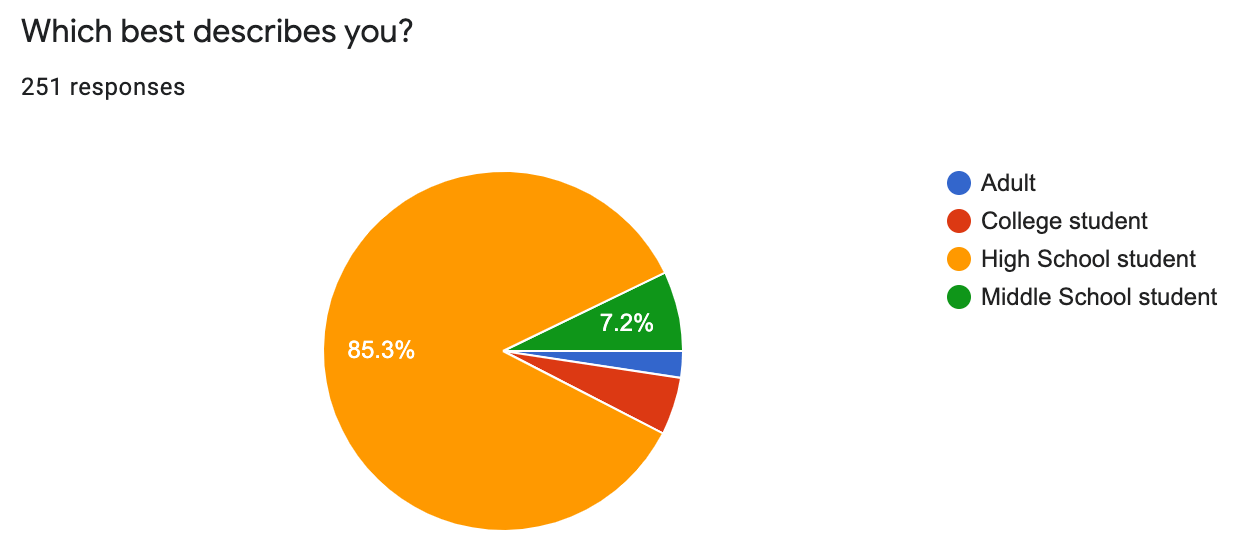
Who spoke, and how were they received?
The speakers for each day are listed in the program guide.
At the end of each day of the conference, we administered a survey that (among other things) asked students to select up to four sessions that were most USEFUL to them. This produced a forced ranking. The big takeaway from these surveys? There was a lot of variation. Different speakers were useful to different students.
Monday
On Monday, 151 out of the 199 respondents listed Sal Khan among the four most useful out of the ten sessions. The session mentioned least frequently was the brief recording of Hudson Yang — but that doesn’t mean the session was a dud. At only a minute in length, this session was one of the top picks for 11% of the respondents, who might have been inspired by his message about getting civically engaged.
Few of the students at this conference attended charter schools, so it would be natural to expect that a presentation about them would be of limited relevance. Nevertheless, Hae-Sin Thomas, who spoke about charter schools, was cited by 30% of respondents as having delivered one of the four most useful presentations of the day.
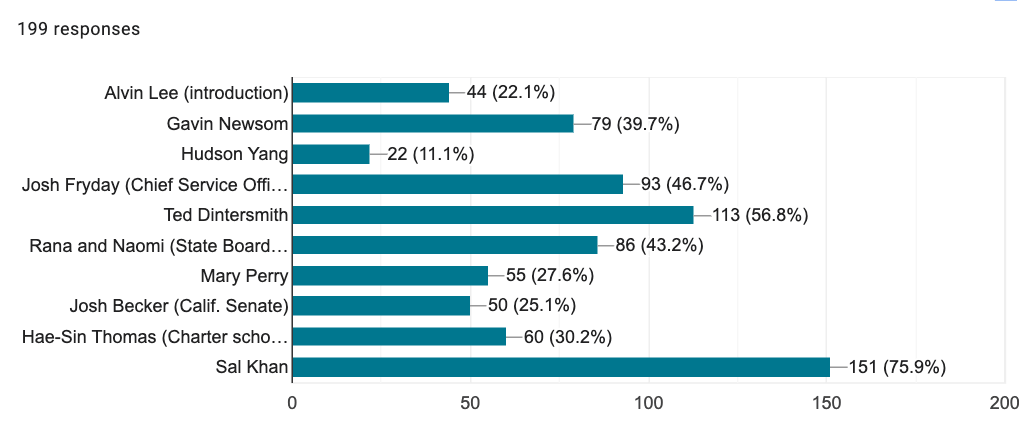
In addition to this summative assessment, students responded to the open-ended question “What are the three most important things you learned from today's sessions?” For their answers, view the full Post-Event Analysis.
Tuesday
On Tuesday, 127 out of the 193 respondents named Dr. Shirley Weber’s presentation among the four most useful of the nine they saw. Dr. Weber explained how students aged 16 and up could participate in elections and campaigns — and get paid for it.
Carrie Hahnel’s presentation, titled “The Change-Maker’s Toolkit,”, was the longest session of the conference, 45 minutes of practical information about how to access and use education information resources in ways that even many school board members don’t know about. She taught students how to find school board policies using GAMUT Online, for example, and how to compare district finances using Ed-Data.org. No one expects parents to know this stuff exists, much less students!
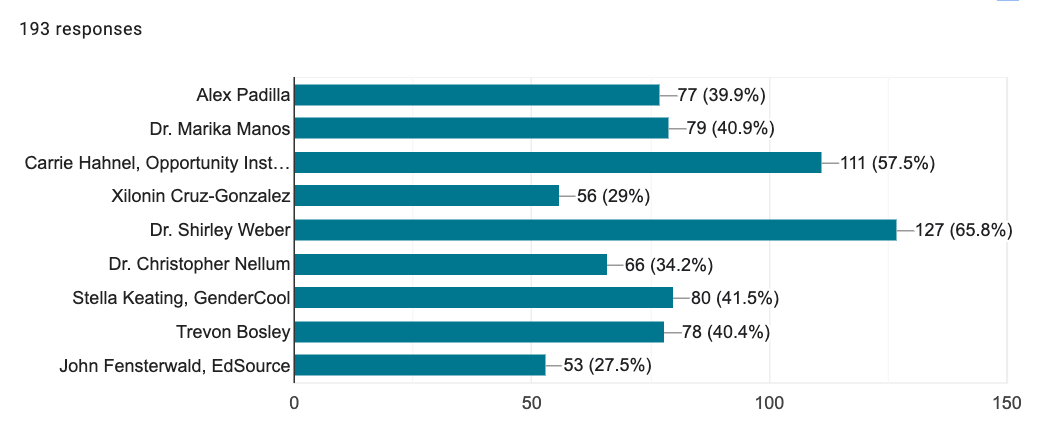
Again, students were asked “What are the three most important things you learned from today's sessions?” For their answers, view the Post-Event Analysis.
Wednesday
On the third day of the conference, students heard short “pitches” from a dozen organizations that have leadership opportunities for students. Students were invited to rank their interest in these organizations and opt-in to connect with any that they found exciting. This match-making exercise yielded the following results:
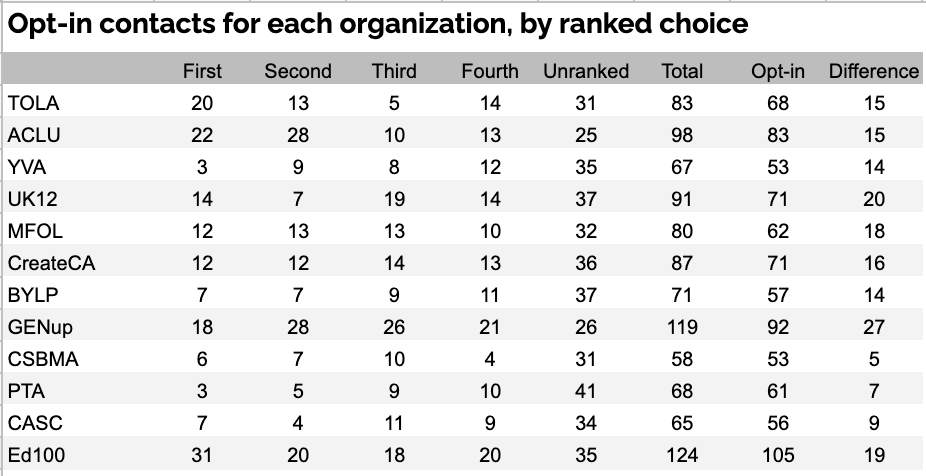
Every organization came away with contact information for at least three highly motivated students, and some with many more. Read more in the Post-Event Analysis.
Additional findings
As in past years, students said they came into this conference with very uneven understanding of the education system.
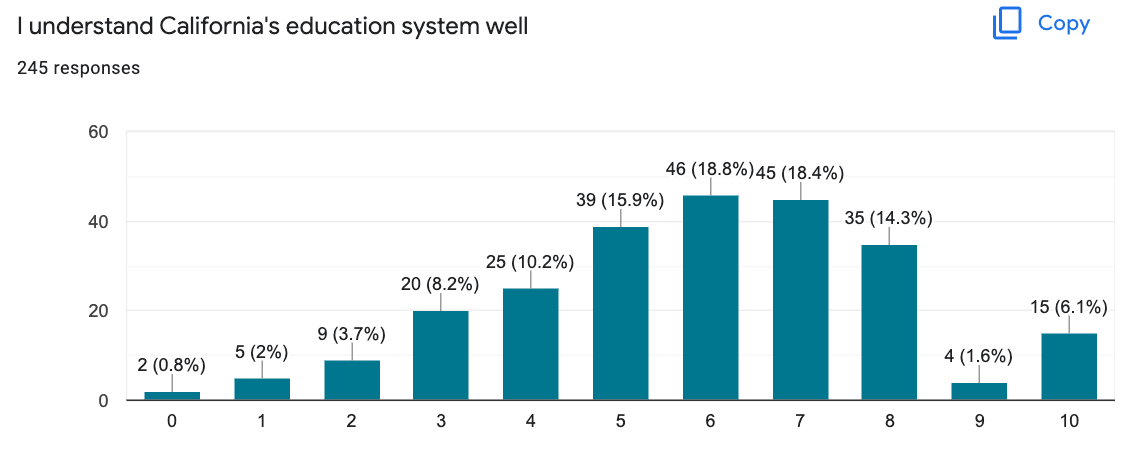
They overwhelmingly left the conference with the sense that they understood it better.
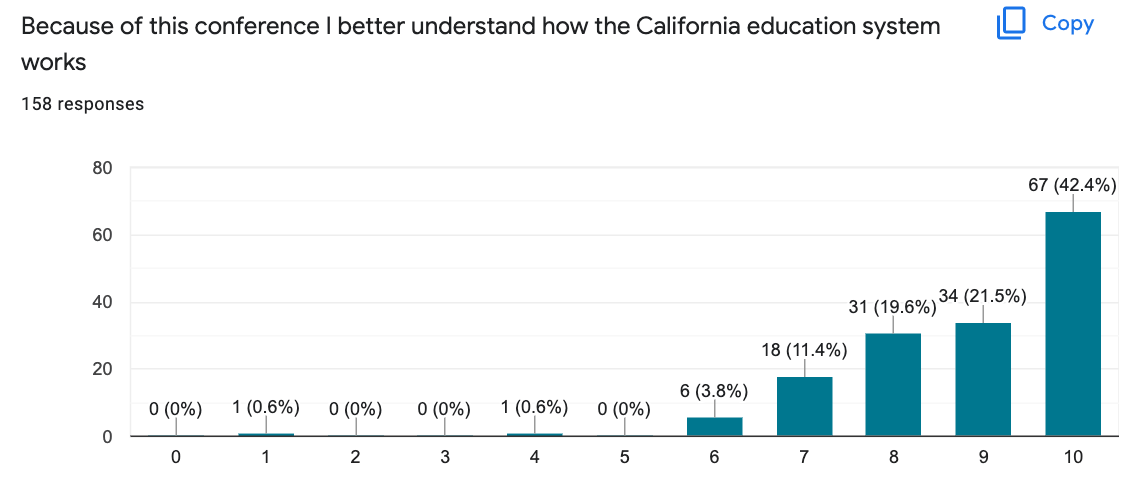
Different from past years, students generally said that the conference successfully connected them with student leaders from other schools. This reflected a major effort by the team of student leaders, who held breakout sessions each day of the conference.
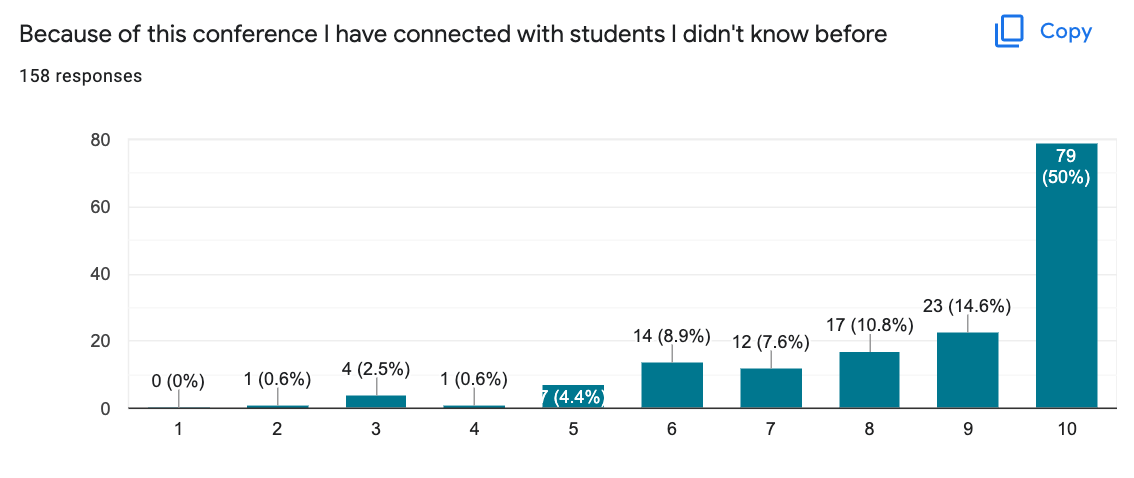
You can read much more information about the conference survey findings in the Post-Event Analysis.
Tags on this post
All Tags
A-G requirements Absences Accountability Accreditation Achievement gap Administrators After school Algebra API Arts Assessment At-risk students Attendance Beacon links Bilingual education Bonds Brain Brown Act Budgets Bullying Burbank Business Career Carol Dweck Categorical funds Catholic schools Certification CHAMP Change Character Education Chart Charter schools Civics Class size CMOs Collective bargaining College Common core Community schools Contest Continuous Improvement Cost of education Counselors Creativity Crossword CSBA CTA Dashboard Data Dialogue District boundaries Districts Diversity Drawing DREAM Act Dyslexia EACH Early childhood Economic growth EdPrezi EdSource EdTech Education foundations Effort Election English learners Equity ESSA Ethnic studies Ethnic studies Evaluation rubric Expanded Learning Facilities Fake News Federal Federal policy Funding Gifted Graduation rates Grit Health Help Wanted History Home schools Homeless students Homework Hours of opportunity Humanities Independence Day Indignation Infrastructure Initiatives International Jargon Khan Academy Kindergarten LCAP LCFF Leaderboard Leadership Learning Litigation Lobbyists Local control Local funding Local governance Lottery Magnet schools Map Math Media Mental Health Mindfulness Mindset Myth Myths NAEP National comparisons NCLB Nutrition Pandemic Parcel taxes Parent Engagement Parent Leader Guide Parents peanut butter Pedagogy Pensions personalized Philanthropy PISA Planning Policy Politics population Poverty Preschool Prezi Private schools Prize Project-based learning Prop 13 Prop 98 Property taxes PTA Purpose of education puzzle Quality Race Rating Schools Reading Recruiting teachers Reform Religious education Religious schools Research Retaining teachers Rigor School board School choice School Climate School Closures Science Serrano vs Priest Sex Ed Site Map Sleep Social-emotional learning Song Special ed Spending SPSA Standards Strike STRS Student motivation Student voice Success Suicide Summer Superintendent Suspensions Talent Taxes Teacher pay Teacher shortage Teachers Technology Technology in education Template Test scores Tests Time in school Time on task Trump Undocumented Unions Universal education Vaccination Values Vaping Video Volunteering Volunteers Vote Vouchers Winners Year in ReviewSharing is caring!
Password Reset
Search all lesson and blog content here.
Login with Email
We will send your Login Link to your email
address. Click on the link and you will be
logged into Ed100. No more passwords to
remember!














Questions & Comments
To comment or reply, please sign in .